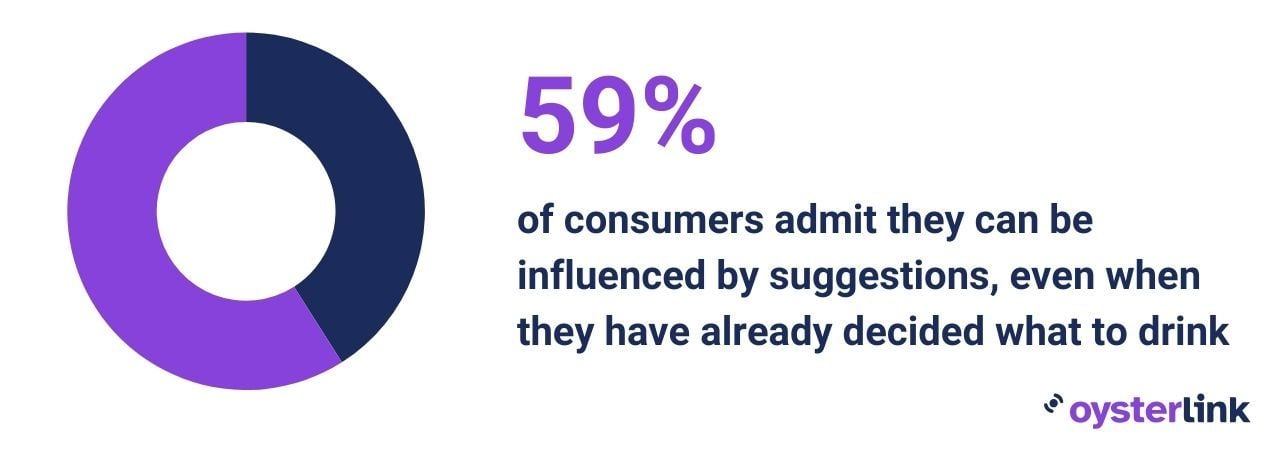Top 30 Bartender Interview Questions & How To Answer Them
In this guide, we’ll look into top Bartender interview questions to ask, categorized into Skills and Experience, Customer Service and Situational/Behavioral, with concise explanations and illustrative example answers.
Popular Bartender Interview Questions
Here are some of the most popular and common questions that are asked during a Bartender job interview.
To make it easier to study them, we've got the Bartender interview questions and answers in PDF format, as well as in DOC Word format.
Types of Bartender Interview Questions
- Bartender questions about skills and experience: These questions are designed to test the applicant's abilities and knowledge of working behind the bar. They'll also highlight any previous bartending experience they might have.
- Bartender questions about customer service: This group of questions is essential for evaluating the candidate's proficiency in delivering exceptional customer service and being able to upsell.
- Behavioral and situational Bartender questions: These questions will assess the candidate's problem-solving skills, adaptability and professionalism in real-life situations.

[Source: CGA]
15 More Bartender Job Interview Questions
- What are the top 3 qualities that make a Bartender great at their job?
- What do you do to keep up with the latest trends in bartending?
- Have you attended or completed any formal bartender training?
- Are you comfortable working long hours and holidays?
- Would you be able to train a Barback effectively?
- What types of bars have you worked at previously?
- Have you had to deal with an emergency situation during your shift?
- What is your favorite cocktail to make and why?
- How do you keep your workspace clean and organized?
- Have you ever worked in a beach bar?
- If a specific cocktail ingredient was unavailable, what would you do?
- What are the essential tools that every Bartender should know how to work?
- Have you ever had to make special drinks on request?
- How would you handle drink returns or remakes?
- Have you ever had to deal with a POS system malfunction and what did you do?
How To Prepare for a Bartender Interview
Prepare for a Bartender interview by focusing on essential aspects both as a candidate and an interviewer.
As a candidate:
- Familiarize yourself with the establishment where you're interviewing. Understand their atmosphere, menu offerings and customer preferences.
- Be prepared to dive into details from your job history, referring to the job description as a guide to emphasize relevant skills and experiences. Highlight specific accomplishments, challenges you’ve overcome and instances where you provided exceptional service to patrons.
- Stay updated on cocktail recipes, trends and mixology techniques. Interviewers may inquire about your knowledge of different beverages and your ability to craft creative and high-quality drinks. To make yourself stand out, consider practicing flair bartending.
As an interviewer:
- Prepare questions to ask your Bartender in order to assess their customer service skills, ability to handle stressful situations and knowledge of beverage preparation and liquor laws.
- Consider conducting a practical skills assessment, such as asking candidates to demonstrate their ability to prepare a signature cocktail or handle a simulated customer interaction.
- Create a welcoming and professional atmosphere for the interview, allowing candidates to showcase their personality and skills comfortably.
Testimonial From an Established Head Bartender
What steps have you taken to progress in your career?
"The steps I took to progress in my hospitality journey were to be a sponge to absorb as much information as possible and to learn about each aspect of hospitality. I enrolled into a hospitality management program at ICE in Manhattan, which gave me lots of valuable knowledge."
More Bartender Interview Tips
Below you'll find some useful tips about how to ace your Bartender interview from Cassandra Michelle, a Bartender, Bar Manager and TikTok content creator with over 500k followers.
She shares tips like showing up on time, bringing a paper copy resume, the proper Bartender interview outfit and much more.
Bartender Industry Trends in 2024
There are currently over 711,000 people working as Bartenders in the United States, and over 60% of all Bartenders are men.
The bartending industry is projected to experience a steady growth rate of 3% from 2022 to 2032, leading to an estimated 113,500 job openings annually, as reported by the Bureau of Labor Statistics (BLS). These opportunities largely arise from Bartenders transitioning to new occupations or retiring from the workforce.
Are Bartenders Paid Well?
The average base Bartender salary in the U.S. is $37,090 a year.
In addition to base pay, Bartenders often rely on tips to supplement their income. In cities like Miami and New York or prestigious establishments, Bartenders may enjoy lucrative compensation packages thanks to generous tips from patrons.
However, those in entry-level positions or less affluent areas may earn less.




